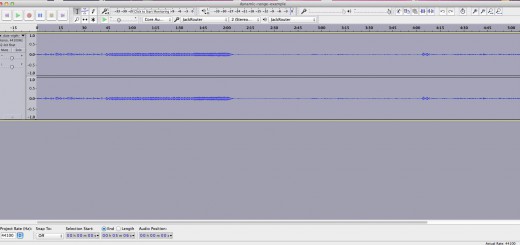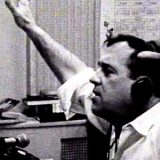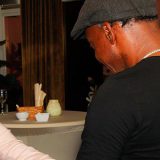Why Fred Jacobs is Right About Podcasting—And Why He’s Not
 Fred Jacobs, one of the leading radio and media consultants in the country, published a blog post not long ago in which he reflected on the future of podcasting. He drew his conclusions from his Techsurvey11 and I have no doubt the results are both accurate and actionable—so much so, that I think we podcasters ignore what he has to say at our own peril.
Fred Jacobs, one of the leading radio and media consultants in the country, published a blog post not long ago in which he reflected on the future of podcasting. He drew his conclusions from his Techsurvey11 and I have no doubt the results are both accurate and actionable—so much so, that I think we podcasters ignore what he has to say at our own peril.
However, since he wrote from a broadcasting point-of-view, I don’t think everything he said tracks with podcasting. With deference to his years of experience, here’s my podcasting point-of-view commentary on some of what he wrote (I’m paraphrasing Jacobs but you can read his post for the exact wording):
1. AGREE: Don’t Let Serial Become the Next Steve Jobs/Apple Analogy
Setting Jobs’ personality aside, Apple started with a product that filled a need. That need was first demonstrated by hobbyists, who worked out the kinks and let faulty ideas fall by the wayside. Ira Glass spent years on This American Life priming the pump for a podcast like Serial. The Apple II wasn’t an immaculate conception; neither was Serial.
2. AGREE: Binge and On-Demand Television Viewing Proves There’s the Potential for Radio Listeners to Consume Audio Content in the Same Fashion
Jacobs also points out that shoddy content won’t get downloaded. I’ve written before about radio and its near-century of commercialization. A hundred years is quite a head start when it comes to setting a standard for what constitutes listenable content. Content that doesn’t meet that the bar, or come within 90% of it, will do little more than occupy server space.
3. DISAGREE: There Isn’t a Great Deal of Momentum for Podcasting Because Only 11% of Respondents in His Survey Say They’re Listening to More of On-Demand Programming
My issue isn’t with Jacobs’ numbers, only his interpretation. Two forces are working behind the scenes that I think constitute momentum. These forces aren’t measured by pure user demand.
One is the continuing push to enable the FM receiver chips in smartphones. The other is the inexorable march toward improved user interfaces. Smart automobile dashboards are leading the way in making listening to radio, podcasts, music and the Internet fluid, intuitive, and one-touch simple. These advances will make smartphones the transistor radios of today. This is a game-changer, and it’s already building up steam.
4. AGREE: Great Content of Interest to Thousands of Consumers Isn’t Going to Come From Recycled Content or From People in a Studio Throwing Around F-Bombs
I’ll go one step further and suggest that great podcasting content doesn’t come from sounding like everyone else, either. Podcasting is our chance to develop and promote unique voices and new forms of storytelling. These are areas that radio, with its corporate constraints, doesn’t view as a priority.
5. AGREE AND DISAGREE: Podcasting Won’t be Making a Lot Of People Rich Any Time Soon
Sure, if you’re an iHeartMedia, or even a mid-sized group owner, podcasting won’t generate the cash flow you’re used to seeing from your other revenue sources. But these are the people to whom Jacobs speaks. As eBooks are demonstrating, authors are enjoying comfortable incomes and professional satisfaction by targeting niche audiences. Let’s not hang everything on getting rich quick. That never works.
6. “Podcasting done well is hard work.”
Do I agree or disagree? What do you think?









Good piece, well considered, and the main thing is that it keeps the conversation going. So when will commercial radio truly step up? Thanks for writing this.
I don’t know when commercial radio will truly step up. That seems to be more in your bailiwick than mine. What strikes me, though, is the way commercial radio has abandoned what made commercial radio so successful for the first 80 years or so of its existence: great storytelling and engaging characters. Even after the last soap opera departed for TV, the Top 40 jocks of the 60s created unique characters and made their shows into little stories (or at least took teenagers on an adventure called growing up).
Yes, the Howard Sterns and the Rush Limbaughs of radio still harness the power of storytelling and character. But these talents, and that programming, are swamped by the hundreds of homogenous voices that read the same liners at the same time from market to market. If anything, Serial should be a wake-up call: great storytelling and engaging characters. It worked for 80 years. It still works today. What’s standing in commercial radio’s way?